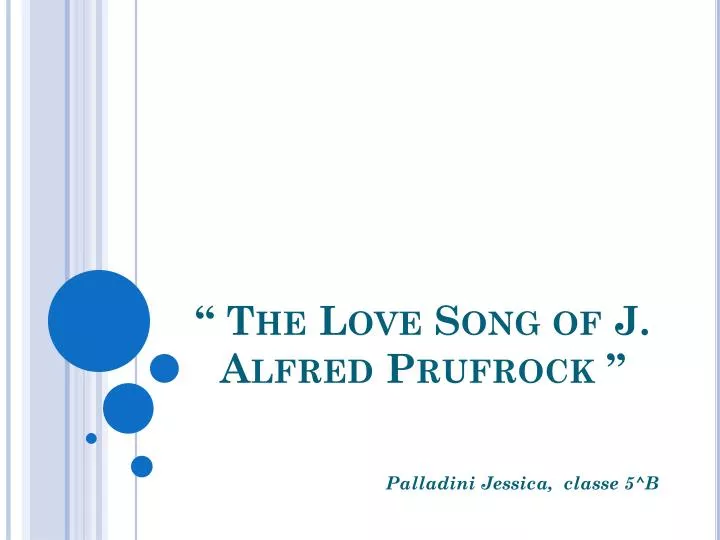


Read Bartleby’s online version “ The Love Song of J.Eliot and his works, including critical essays on “The Love Song of J. Browse the EDSITEment-reviewed Modern American Poetry overview of T.S.Eliot biography from the EDSITEment-reviewed Academy of American Poets website. Read the Poetry Exhibit “ The Modernist Revolution: ‘Make It New!’” from the EDSITEment-reviewed Academy of American Poets website.Otherwise, make copies for students to complete during in-class individual or group work. Alfred Prufrock” in preparation for Lesson Three. If you wish students to complete the worksheet at home, hand out the Prufrock Analysis Worksheet for students to complete as they are reading T.S.
#Love song alfred prufrock download
Download and print out documents you will use and duplicate copies as necessary for student viewing. Locate and bookmark suggested materials and other useful websites. In this lesson, students will explore the role of the individual in the modern world by closely reading and analyzing T.S. These changes transformed the world from one that seemed ordered and stable to one that felt futile and chaotic. Alfred Prufrock” (1917), were prompted by fundamental and far-reaching historical, social, cultural, and economic changes in the early 1900s. Such ontological feelings of fragmentation and alienation, which often led to a more pessimistic and bleak outlook on life as manifested in representative modernist poems such as T.S. In other words, a coherent speaker with a clear sense of himself/herself is hard to find in modernist poetry, often leaving students confused and “lost.” Indeed, the speaker of modernist poems characteristically wrestles with the fundamental question of “self,” often feeling fragmented and alienated from the world around him. A primary reason students feel a bit disoriented when reading a modernist poem is that the speaker himself is uncertain about his or her own ontological bearings. Modernist poetry often is difficult for students to analyze and understand. from the EDSITEment-reviewed Academy of American Poets “ The Modernist Revolution: Make It New” "The English novelist Virginia Woolf declared that human nature underwent a fundamental change 'on or about December 1910.' The statement testifies to the modern writer's fervent desire to break with the past, rejecting literary traditions that seemed outmoded and diction that seemed too genteel to suit an era of technological breakthroughs and global violence."


 0 kommentar(er)
0 kommentar(er)
